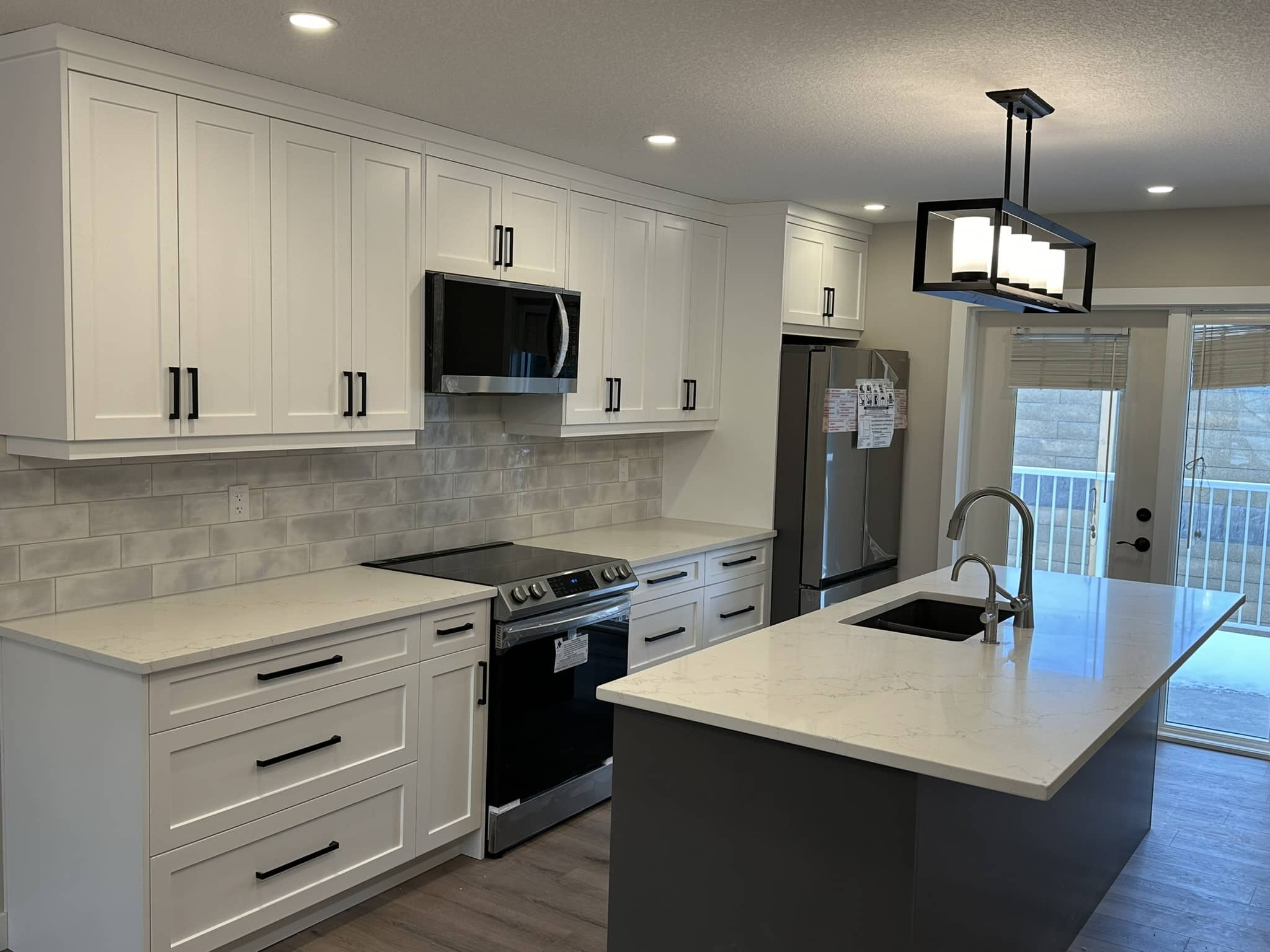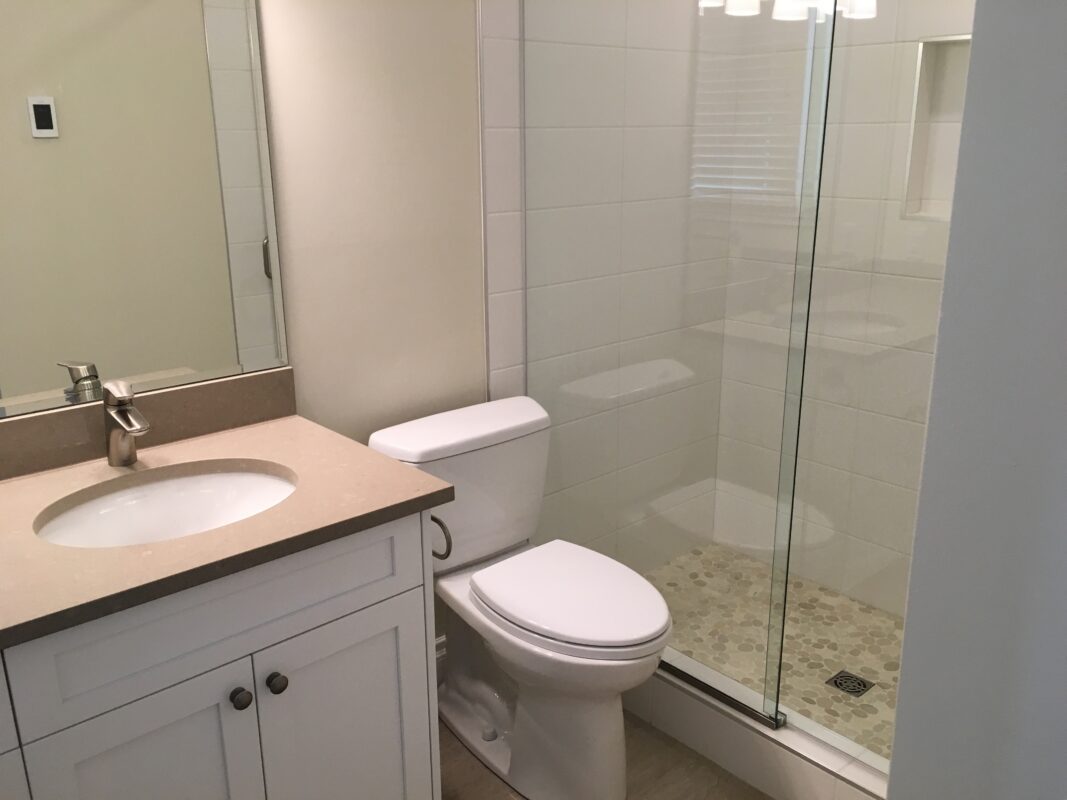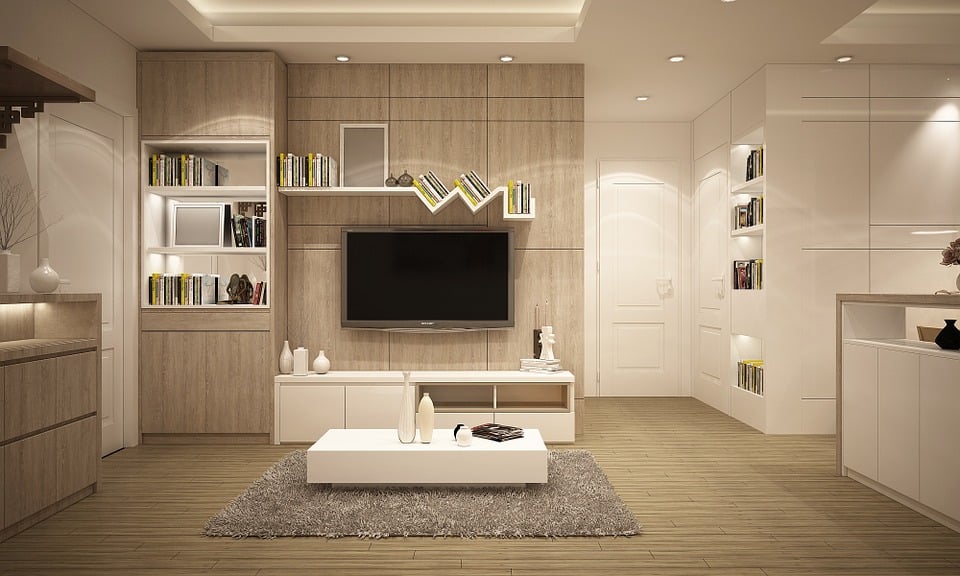Top Home Renovations Tips – Granite Vs Quartz

When embarking on your home renovations, one of the most significant decisions you’ll face involves selecting the right materials for your countertops. Whether it’s for your kitchen, bathroom, or a custom table, the choice between granite and quartz is a common dilemma. Both materials are celebrated for their durability and aesthetic appeal, making them top choices for homeowners worldwide. This comparison seeks to explore the nuances of each option, considering factors like appearance, cost, environmental impact, maintenance, and overall durability, to help you make a well-informed decision.
Home Renovations – Granite or Quartz
All About Granite
Granite, an igneous rock, boasts a natural beauty that comes from its composition of quartz, feldspar, amphiboles, micas, and various trace elements. This diverse mix results in an array of colors and patterns, ensuring that each granite countertop is uniquely exquisite. With quartz content ranging from 10 to 50%, granite exhibits a semi-transparent white hue, while feldspar, which makes up 65 to 90% of the composition, imparts a pinkish tint. The presence of these minerals contributes to the stone’s captivating appearance and the broad spectrum of textures found in granite slabs.
The allure of granite lies in its natural formation process. As molten material from deep within the Earth’s crust cools and solidifies, it creates a rock that’s as durable as it is beautiful. This process also ensures a vast selection of colors and patterns, with no two slabs being identical. The unique mineral combinations in each piece of granite mean that you can select a countertop that not only complements your kitchen’s décor but also stands out as a focal point due to its distinctiveness.
However, the beauty of granite does come with considerations for upkeep. Daily cleaning with mild detergent or soapy water is necessary to maintain its luster, and being mindful of oils and acids is crucial to prevent stains. Furthermore, to preserve its resilience and appearance, granite countertops require annual resealing. This maintenance ensures the stone remains resistant to stains and damage over time, prolonging the life of your investment.
More on Quartz
Quartz countertops offer a blend of natural beauty and engineered excellence. Contrary to the belief that these countertops are crafted from the natural rock quartz arenite, they are actually man-made, comprising about 90% quartz. The remaining components include synthetic polymers and resins, which bind the quartz particles, and pigments that introduce a range of colors. This composition not only enhances the stone’s durability but also allows for a non-porous, crack-free surface that can be tailored to match any interior design scheme.
The appeal of quartz extends beyond its customizability. Its engineered nature means that quartz countertops are incredibly durable, resistant to scratches, and non-porous, making them an ideal choice for areas prone to spills. Unlike granite, quartz doesn’t require annual sealing, making it a low-maintenance option for busy households. However, it’s important to note that despite its resilience, quartz can be damaged by excessive heat, so using trivets or heat pads is advisable when placing hot items on the surface.
Quartz’s eco-friendly profile is another point in its favor. Being an engineered product, it often incorporates recycled materials. Additionally, choosing quartz countertops manufactured locally can further reduce their environmental footprint by minimizing transportation costs. This aspect makes quartz an attractive option for homeowners looking to make sustainable choices in their renovation projects.
Price Comparison and Environmental Impact
The cost of quartz and granite countertops can vary widely based on quality, design, and installation requirements and are to be considered during your home renovations. Quartz tends to be pricier due to its weight and the necessity for professional installation. Granite, while generally more affordable, also requires expert installation, especially considering the precision needed in handling and fabricating the heavy slabs.
When it comes to environmental impact, both materials have their pros and cons. Quartz, being engineered, can incorporate recycled materials in its production process and typically has a lower transportation footprint when sourced locally. This makes it a more sustainable option for those looking to minimize their renovation’s environmental impact.
Granite, as a natural stone, involves quarrying which can be energy-intensive. However, choosing locally sourced granite can mitigate some environmental concerns, reducing the carbon footprint associated with transportation. For those committed to using natural materials, granite sourced from local quarries represents a more eco-friendly choice.
Enhancing Home Value
Incorporating stone countertops into your home renovation can significantly enhance your property’s value. Both granite and quartz are sought after for their beauty, durability, and timeless appeal, making them excellent investments for any homeowner. Not only do they elevate the aesthetic of your space, but they also create a lasting impression that can translate into a higher home valuation.
Durability and Maintenance: A Closer Look
Quartz stands out for its superior durability and low maintenance needs. As a non-porous material, it is resistant to staining and does not require annual sealing, making it an ideal choice for kitchens and bathrooms alike. Its composition renders it almost indestructible under normal kitchen conditions, providing a long-lasting, bacteria-resistant surface. However, care should be taken to avoid direct exposure to high temperatures, as the resin components can be damaged by excessive heat.
Granite, on the other hand, requires a bit more care to maintain its natural beauty. Its porous nature means spills should be wiped up promptly to prevent staining, and it should be sealed annually to maintain its resistance to damage and staining. Despite these requirements, granite’s heat resistance and durability make it a formidable choice for those who prefer natural stone’s unique patterns and color variations.
The Aesthetic Appeal
The choice between quartz and granite often comes down to personal preference regarding aesthetic appeal in your home renovations. Quartz offers a more uniform look with a wide range of color options, making it easier to match with your home’s decor. Its ability to mimic the appearance of natural stone, coupled with the potential for customization, allows for a tailored design approach to fit any style.
Granite exudes a natural elegance, with each slab offering a unique pattern and coloration, derived from its mineral composition. This uniqueness means that granite countertops can serve as a statement piece in any room, adding character and depth to the space. For those who value the distinctiveness of natural materials, granite provides an unmatched option.
Making the Right Choice for Your Home Renovations
Deciding between granite and quartz countertops involves weighing factors such as aesthetics, maintenance, durability, cost, and environmental impact. Quartz offers a versatile, low-maintenance option with a wide range of design possibilities, while granite brings the unmatched beauty of natural stone, requiring a bit more care to maintain its appearance over time. Both materials can significantly enhance the value and functionality of your home, making them excellent choices for any renovation project.
Ultimately, the best choice depends on your personal preferences, lifestyle, and the specific needs of your home renovations. By considering the unique characteristics and benefits of each material, you can select the countertop that best aligns with your vision for your home renovation, ensuring a result that combines beauty, durability, and practicality for years to come.













